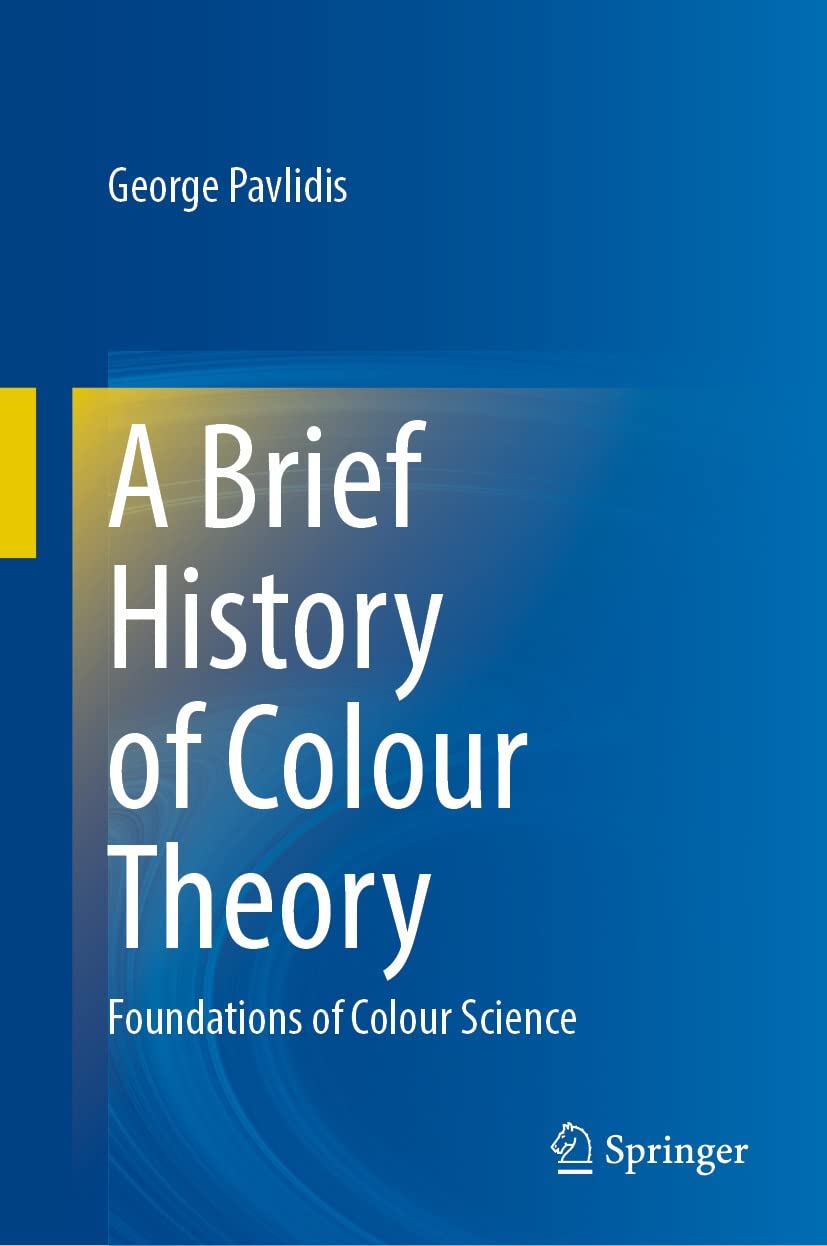
A Brief History of Colour Theory tells the story of almost two and a half millennia, written by protagonists of a variety of characters. In the era of philosophy, colour science was founded upon logic, experience and philosophical worldviews. During the middle ages, the theory shifted towards experimental verification, although still strongly influenced by personal and societal worldviews. The 16th century marks a keypoint in the history of colour science, when thinkers became investigators in search of an objective truth.
The book proposes a journey through time from the 6th century BCE to the mid 20th century, a journey into great minds and pioneering thinkers, through their original texts about light, vision and colour, beginning with Alcmaeon’s vision through water and fire inside the eyes and ending with John Guild’s colour specification and standardisation. Largely cross-disciplinary contributions are presented from physiology, neurology and anatomy, physics, mathematics and signal processing, linguistics and philosophy.
What is made clear in the book is that there could be no colour science at all if one excludes the observer. Colour is a purely subjective phenomenon. Many of the referenced scientists and thinkers realised it and focused on the study of light and its nature, without any further investigation of colour. Through the integration of neuroanatomists, it became possible to reach an understanding of the processes underlying the very definition of the notion of colour. Then, it was also realised that colour perception is more than just the chemical signalling cascade in some type of specialised cells; far more complex phenomena take place in the sensing, transmission, compression, semantic analysis and interpretation of light before it is assigned a colour.
Objectively, colour perception may be nothing more than an end-product of a conscious process that targets the labelling of different wavelengths of light, which, in effect, denote differences in the surrounding world. Although colour perception might have been just a result of survival evolution it has a profound role for social beings and their organisations; apart from a strong everyday experience, it is a means for expression and pleasure, and an integral part of the arts and aesthetics.
The book is available through Springer shop, and the Amazon author page.


